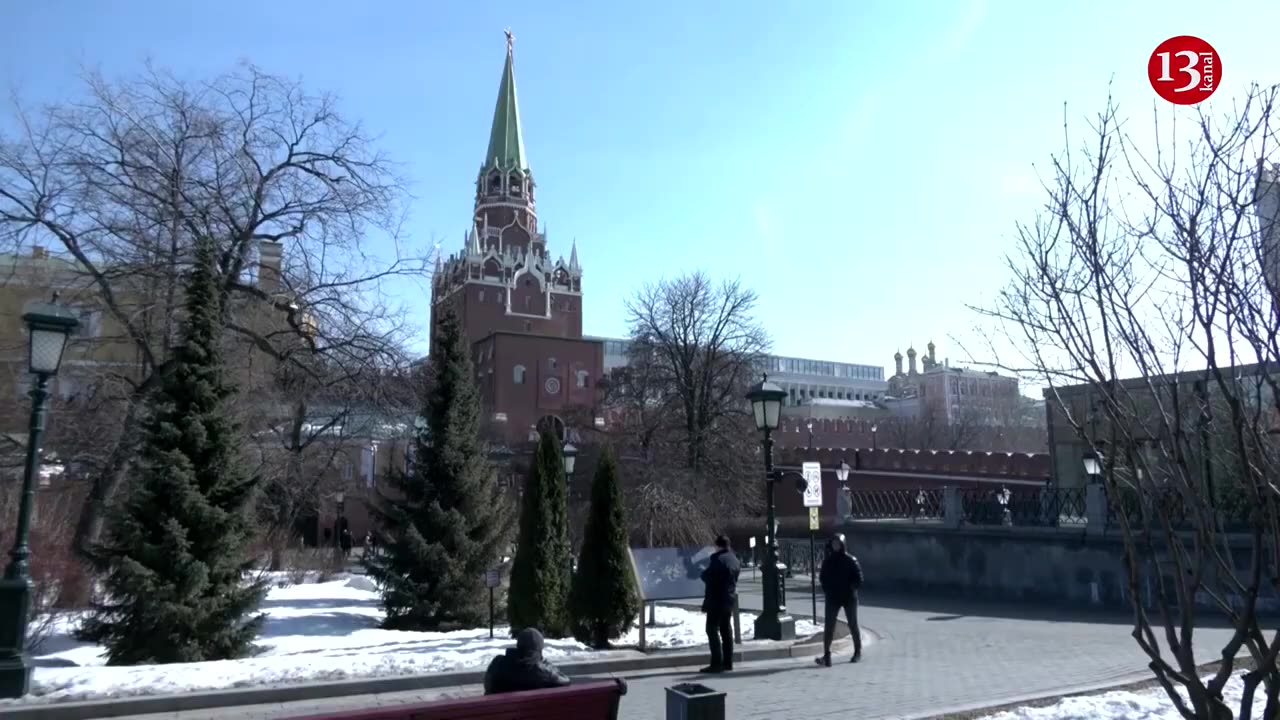Premium Only Content

Tajiks in Russia fear mass deployment to war in Ukraine
In Moscow, migrants from Tajikistan are trying to avoid leaving their homes due to fears of deportation or being sent en masse to war against Ukraine following the terrorist attack at Crocus City Hall, according to The New York Times.
Because four of the suspects detained in the attack near Moscow are Tajikistan nationals, anti-migrant rhetoric has intensified in Russia, especially online. Xenophobia has been spreading most actively in the pages of so-called war bloggers, and supporters of Russia's invasion of Ukraine, who are predominantly far-right.
As a result, the Kremlin is satisfying the demands of war supporters by promising tougher actions against migrants while also trying to prevent an outbreak of interethnic tension in society.
According to Russian state statistics, nearly a million citizens of Tajikistan were registered in Russia last year as labor migrants.
A food business manager in Moscow, where Tajiks work, told The New York Times that the sentiments resemble those of the 2000s when Muslims from the Caucasus faced widespread discrimination after terrorist attacks and the war in Chechnya. Tajiks in Moscow are so scared that they hardly go out at all, she said.
They fear not only deportation but also being involved in the war in Ukraine, said 25-year-old Saidanvar, a Tajik human rights activist who recently left Moscow.
"Tajiks are really afraid that the Russian authorities will start sending Tajiks to the front en masse to fight as a sort of revenge against our Tajik people," he said.
The Tajikistan embassy in Russia warned its citizens over the weekend not to leave their homes unless necessary, and one migrant advocate told CBC News she has received thousands of inquiries from migrants who are on high alert and in some cases, facing increased racism and scrutiny from authorities.
"I tell them not to go to mosques now and don't visit any shopping and entertainment centres if possible," said Valentina Chupik, a lawyer who provides assistance to Central Asian migrants in Russia. "People are getting detained on the street and in the subway."
While Russia's economy relies on the migrants to fill jobs in the construction industry and service sector, advocates say the population is already marginalized and faces anti-immigration sentiment, which appears to have risen since the attack.
-
 DVR
DVR
EvilT4000
3 hours agoSaturday.....🟢For energy and focus click my Dubby link!
19 -
 LIVE
LIVE
SlingerGames
31 minutes agoSpartan Night - Halo and More | Creator for @SELFMADEGGS
25 watching -
 LIVE
LIVE
Mally_Mouse
6 hours agoSpicy Saturday!! - 10k CELEBRATION! - Let's Play: Labyrinthine
364 watching -
 37:09
37:09
The Mel K Show
6 hours agoMel K & Dr. Kirk Moore | A Doctor’s Oath: Doing What is Right No Matter the Cost | 7-26-25
14.4K9 -
 LIVE
LIVE
Cewpins
1 hour agoLet's BLAZE!!🔥SmokeSesh💨420🍃!MJ
71 watching -
 LIVE
LIVE
MDGgamin
9 hours ago🔴LIVE - TARKOV & ARMA - Shots For Subs Saturday!!! - Chilling & Chatting - #RumbleTakeover
19 watching -
 LIVE
LIVE
Eternal_Spartan
1 hour agoCollab w/ TheBeardedNerdd! | TARKOV AND MORE | Join the Best Chat on Rumble!!!!
35 watching -
 36:44
36:44
NordicVentures
5 days ago $0.71 earnedWINTER Bushcraft 2 Nights: Building ALONE a Survival Shelter
6.52K4 -
 LIVE
LIVE
JakRazGaming
4 hours ago $0.09 earnedPlaying Minecraft with GameQuest1552, Rexmon, and JuicyKinnKandy! Stream 9
79 watching -
 LIVE
LIVE
GoA_Malgus
2 hours agoGoA Malgus - The Legend Has Returned!!! - Live domination on Black Ops 6
39 watching